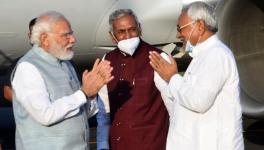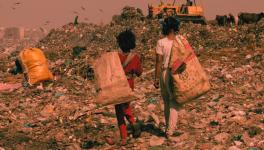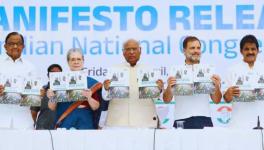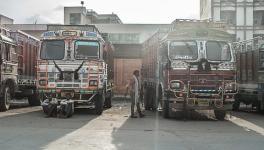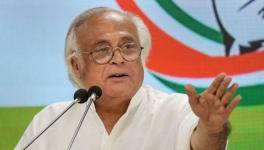Beyond Self Quarantine: Govt Needs to Step up to Save Workers and Economy
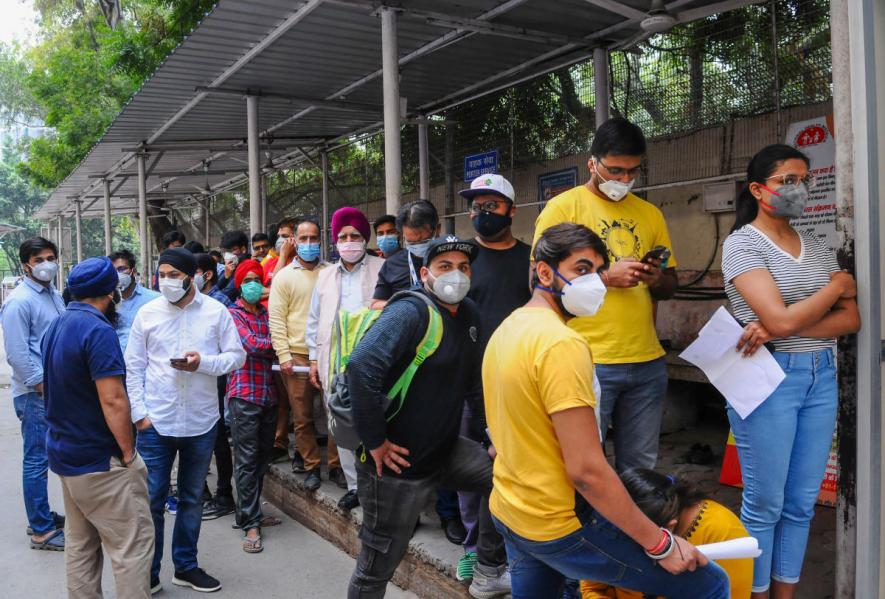
Image Courtesy: Deccan Herald
The National Coalition for Inclusive and Sustainable Urbanisation (NCU) has termed the prime minister Modi’s address to the nation as “unfortunate” and “without any substance” for a large number of the people who are facing incessant miseries because of the twin dangers: an extended economic recession and now, the COVID-19 pandemic. He asked people to take a number of measure and declare a self-proclaimed curfew (janata curfew) on Sunday, March 22, but did not talk much about what the government is planningto do for the people!
According to NCU, this is possibly only the beginning of a lockdown and an ultimatum for severe restrictions is going to follow in the days to come.
Amid this kind of an unprecedented crisis in the country, the government must work proactively to mitigate the woes of the working people. Unfortunately, the much-advertised address of the PM was more symbolic than substantial. It is now clear that the poor and the marginalised will suffer more due to the shutdown.
The NCU, a group of urban practitioners, believes that the urban India is virtually being shattered with the ongoing and imminent shutdowns.
According to the World Bank and the Reserve Bank of India data, the public sector employs only 3.8% of workforce in the country; 2.3% of the workforce is in the formal private sector and remaining nearly 94% are in the informal sector. Most of the jobs in the cities are on a temporary basis and provided through the informal sector. A large number of workers engaged in the private sector and through informal channels are being ousted from their workplaces. It is this sector that demands and seeks the government’s intervention, but the prime minister did not allow any relief for them.
The epidemic and the measures being taken to stop its spread have affected street vendors, construction workers, ancillary sector workers, shopping mall workers, workers in the restaurants, etc. The PM should have, perhaps, taken a lesson or two from some of his counterparts in different parts of the world—who have come out to rescue the affected people.
Take a look:
The US government has announced a package worth $1 trillion and payment of $1,000 (Rs 75,000) to adults and $500 for the children.
The New Zealand government has announced $25,000 as instant tax relief, while welfare recipients will be eligible for one-off cash payments as part of the government’s widely anticipated multi-billion-dollar coronavirus stimulus package. Cash payments are targeted at welfare recipients and over 700,000 businesses will be able to get cash payments between $2,000 and $25,000.
Japan has unveiled two packages worth $4 billion to cope with the impact of the coronavirus. The measures primarily focussed on supporting small and mid-size firms.
The United Kingdom has declared a £330 billion loan package to mitigate the crisis. This amounts to almost 15% of the country’s GDP.
France and Spain have also unveiled emergency packages including direct pay-outs to their employees as well as loans and guarantees for companies to mitigate the economic crisis following the COVID-19 pandemic. France has announced €45 billion direct tax breaks and direct state payments for the economy in addition to the €300 billion loans. Spain, too, has announced a €100 billion loan guarantee in need of cash.
Even the World Bank has approved a $14 billion package to assist the countries in their efforts to prevent, detect and respond to the rapid spread of COVID-19.
Against this backdrop, the NCU has demanded creation of a national contingency fund (NCF) to deal with the present challenge. This fund must be utilised to help people who have been forced to be out of work. The government must also ensure that free ration—including cereal, pulses and other essential items—is provided at least for a month. The Kerala state government has already announced free cereal for a month to every household.
The state governments have a consolidated fund called the state disaster response fund (SDRF), which is aptly being utilised. However, the Centre has modified the guidelines and has asked the states not to use the fund for relief of the families of the victims lost to the virus and to meet the expenditure of treatment. This provision must be revoked immediately so that the state governments can use the money for providing relief to its people with quantifiable measures.
The NCU is of the opinion that the government through the NCF must also provide a stimulus to the economy, which otherwise may get completely tattered, even after recovery from COVID-19.
Get the latest reports & analysis with people's perspective on Protests, movements & deep analytical videos, discussions of the current affairs in your Telegram app. Subscribe to NewsClick's Telegram channel & get Real-Time updates on stories, as they get published on our website.









